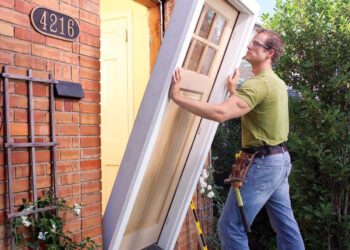Navigating the complexities of permit processing can be a daunting task for any construction project. However, with the help of MyBuildingPermit, you can streamline the process and minimize delays efficiently. This guide explores key strategies to ensure a smooth permit approval process, saving you time and money along the way.
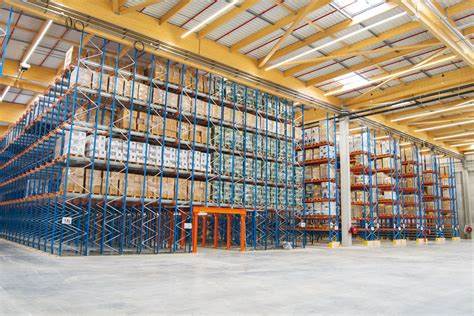
In the following sections, we will delve into the importance of efficient permit processing, the functionalities of MyBuildingPermit, tips for optimal usage, common causes of delays, and effective communication with permitting authorities.
Importance of Efficient Permit Processing
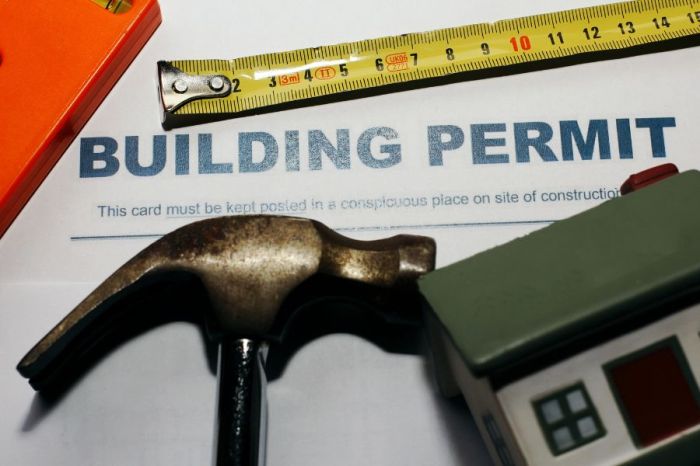
Efficient permit processing is essential for the smooth execution of construction projects. It ensures that all necessary approvals are obtained in a timely manner, allowing work to progress without unnecessary delays.
When permit delays occur, they can have a significant impact on project timelines and budgets. Delays in obtaining permits can lead to construction halts, causing delays in the overall project schedule. This can result in additional costs due to extended labor hours, equipment rentals, and other expenses.
Impact on Project Timelines
- Permit delays can cause construction to come to a standstill, leading to delays in project completion.
- Extended project timelines can affect the availability of contractors and subcontractors, further delaying the project.
- Weather conditions and seasonal restrictions may also play a role in project delays caused by permit processing issues.
Impact on Budgets
- Additional costs may be incurred due to the need for overtime work to make up for lost time.
- Rental costs for equipment and machinery may increase if delays lead to longer project durations.
- Penalties for missing deadlines or breaching contracts could also impact the project budget.
Understanding MyBuildingPermit Platform
MyBuildingPermit is a user-friendly online platform designed to simplify the process of applying for building permits. By leveraging technology, this platform offers a range of features and functionalities that streamline the permit application process and help expedite permit approvals.
Features and Functionalities
- Online Permit Applications: Users can easily submit permit applications online, eliminating the need for in-person visits to government offices.
- Document Management: MyBuildingPermit allows users to upload and manage all required documents digitally, reducing paperwork and streamlining the review process.
- Real-Time Status Updates: Applicants can track the progress of their permit applications in real-time, receiving notifications at each stage of the review process.
- Fee Payments: The platform facilitates online fee payments, ensuring a hassle-free transaction process for permit applicants.
Streamlining the Permit Application Process
MyBuildingPermit simplifies the permit application process by centralizing all necessary information and documents in one convenient online portal. This eliminates the need for physical submissions and allows for quicker and more efficient processing of applications. Additionally, the platform provides clear instructions and guidelines to help users navigate the application process with ease.
Expedited Permit Approvals
By using MyBuildingPermit, applicants can significantly reduce the time it takes to obtain permit approvals. The streamlined process, real-time updates, and digital document management all contribute to faster review times and quicker decision-making by permitting authorities. This not only saves time for applicants but also helps expedite construction projects, leading to faster completion timelines and reduced delays.
Tips for Using MyBuildingPermit Effectively
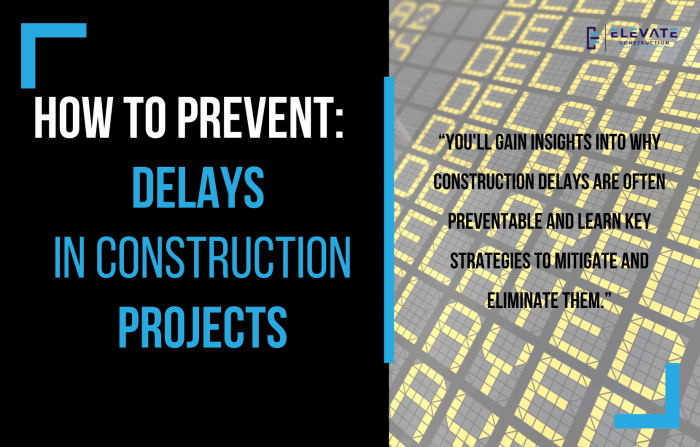
When using the MyBuildingPermit platform, following best practices can help streamline the permit application process and reduce delays. Here are some tips to effectively use MyBuildingPermit:
Submitting Permit Applications
- Ensure all required fields are filled out accurately and completely.
- Double-check all information before submitting to avoid errors.
- Attach all necessary documents, such as plans, drawings, and supporting materials.
- Review the submission guidelines provided on the platform to meet all requirements.
Navigating the MyBuildingPermit Interface
- Start by creating an account and familiarizing yourself with the platform layout.
- Use the search function to easily locate the permit application you need.
- Follow the step-by-step instructions provided for each section of the application.
- Save your progress periodically to avoid losing any information.
Ensuring Documentation Inclusion
- Compile all necessary documents in advance to prevent delays in the application process.
- Organize documents logically and label them correctly for easy identification.
- Check the application checklist to ensure you have included all required documentation.
- Verify that all documents are clear, legible, and meet the platform's specifications.
Common Causes of Permit Delays
In the process of obtaining permits, there are several common mistakes that can lead to delays in approval. It is crucial to understand these factors to ensure a smooth and efficient permit processing experience.
Incomplete or Inaccurate Information
Providing incomplete or inaccurate information is one of the primary causes of permit delays. When the submitted documents or plans are missing key details or contain errors, it can significantly slow down the approval process. For example, failing to include precise measurements, omitting essential signatures, or submitting outdated forms can all lead to delays in permit processing.
Failure to Meet Code Requirements
Another common issue that causes permit delays is a failure to meet building code requirements. If the proposed construction or renovation project does not comply with local building codes and regulations, the permit application is likely to be rejected or delayed.
It is essential to thoroughly review and ensure that the project plans align with all applicable codes before submitting for approval.
Lack of Communication
Poor communication between applicants and permitting authorities can also contribute to delays in the permit approval process. Misunderstandings, unanswered queries, or delays in responding to requests for additional information can all prolong the permit processing timeline. Maintaining open and clear communication with the permitting agency is crucial to avoid unnecessary setbacks.
Missing Documentation
Failure to provide all required documentation is another common cause of permit delays. Whether it's missing permits from other agencies, incomplete site plans, or lack of necessary supporting documents, any missing paperwork can lead to hold-ups in the approval process.
It is essential to double-check and ensure that all required documentation is submitted along with the permit application to prevent delays.
Changes in Scope
Lastly, changes in the scope of the project after the permit application has been submitted can also result in delays. Any modifications or alterations to the initial plans may require additional review and approval, which can prolong the permit processing timeline.
It is crucial to finalize project details before submitting the permit application to avoid unnecessary delays.
Communicating with Permitting Authorities
Effective communication with local permitting authorities is key to avoiding delays in the permit process. It is crucial to maintain clarity and transparency in all interactions regarding permits to ensure a smooth and efficient process. Building a positive relationship with permitting officials can also help expedite the process and resolve any issues that may arise.
Guidelines for Effective Communication
- Clearly state the purpose of your communication and provide all necessary details upfront.
- Be respectful and professional in all interactions with permitting authorities.
- Respond promptly to any requests for additional information or clarification.
- Ask for clarification if you do not understand any requirements or feedback provided by the permitting authorities.
- Keep detailed records of all communication and documentation exchanged throughout the permit process.
Maintaining a Positive Relationship
- Express appreciation for the time and effort of permitting officials in reviewing your application.
- Seek to understand the perspective and constraints of the permitting authorities to find common ground.
- Stay proactive and cooperative throughout the permit process to demonstrate your commitment to compliance.
- Communicate any changes or updates to your project promptly to avoid any misunderstandings or delays.
- Follow up on any outstanding issues or concerns raised by the permitting authorities to ensure timely resolution.
Summary
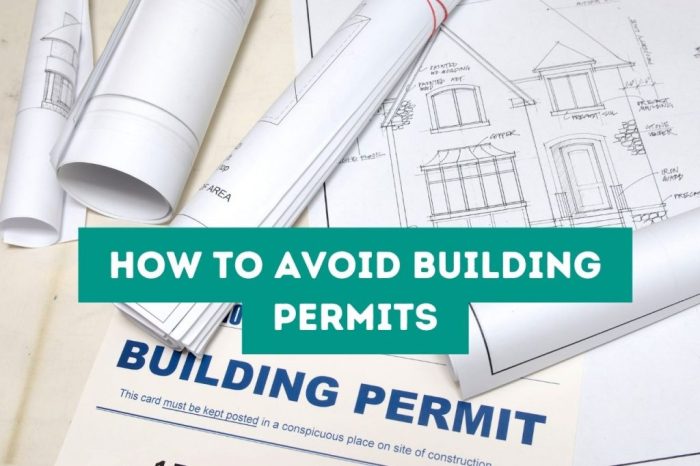
In conclusion, utilizing MyBuildingPermit can be a game-changer in avoiding permit delays and keeping your construction projects on track. By following the tips and best practices Artikeld in this guide, you can navigate the permit application process with ease and confidence.
Stay proactive, stay informed, and watch your projects progress smoothly.
FAQ Summary
How can I track the progress of my permit application on MyBuildingPermit?
You can log in to your account on MyBuildingPermit to track the status of your application in real-time.
What should I do if I encounter technical issues while using MyBuildingPermit?
If you face technical difficulties, you can reach out to the platform's support team for assistance.
Can multiple users collaborate on a single permit application on MyBuildingPermit?
Yes, the platform allows multiple users to work on and collaborate on a single permit application, facilitating teamwork and efficiency.
 In the following sections, we will delve into the importance of efficient permit processing, the functionalities of MyBuildingPermit, tips for optimal usage, common causes of delays, and effective communication with permitting authorities.
In the following sections, we will delve into the importance of efficient permit processing, the functionalities of MyBuildingPermit, tips for optimal usage, common causes of delays, and effective communication with permitting authorities.
 Efficient permit processing is essential for the smooth execution of construction projects. It ensures that all necessary approvals are obtained in a timely manner, allowing work to progress without unnecessary delays.
When permit delays occur, they can have a significant impact on project timelines and budgets. Delays in obtaining permits can lead to construction halts, causing delays in the overall project schedule. This can result in additional costs due to extended labor hours, equipment rentals, and other expenses.
Efficient permit processing is essential for the smooth execution of construction projects. It ensures that all necessary approvals are obtained in a timely manner, allowing work to progress without unnecessary delays.
When permit delays occur, they can have a significant impact on project timelines and budgets. Delays in obtaining permits can lead to construction halts, causing delays in the overall project schedule. This can result in additional costs due to extended labor hours, equipment rentals, and other expenses.
 When using the MyBuildingPermit platform, following best practices can help streamline the permit application process and reduce delays. Here are some tips to effectively use MyBuildingPermit:
When using the MyBuildingPermit platform, following best practices can help streamline the permit application process and reduce delays. Here are some tips to effectively use MyBuildingPermit:
 In conclusion, utilizing MyBuildingPermit can be a game-changer in avoiding permit delays and keeping your construction projects on track. By following the tips and best practices Artikeld in this guide, you can navigate the permit application process with ease and confidence.
Stay proactive, stay informed, and watch your projects progress smoothly.
In conclusion, utilizing MyBuildingPermit can be a game-changer in avoiding permit delays and keeping your construction projects on track. By following the tips and best practices Artikeld in this guide, you can navigate the permit application process with ease and confidence.
Stay proactive, stay informed, and watch your projects progress smoothly.












